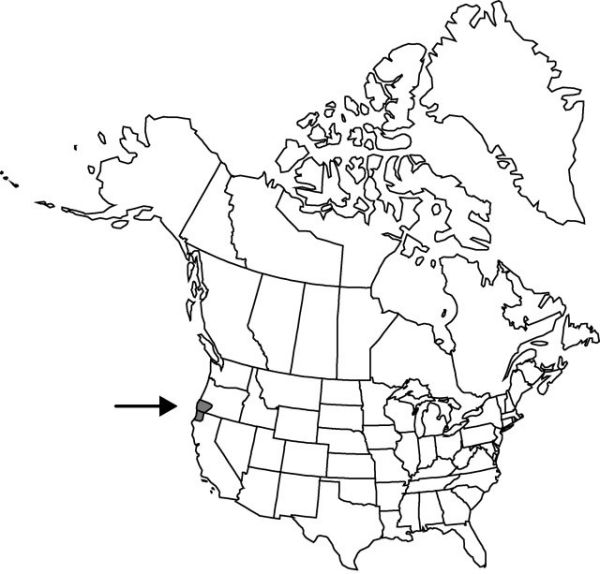Iris innominata
Rhodora 32: 23. 1930.
Rhizomes freely branching, forming compact tufts, slender, 0.3–0.4 cm diam., covered with remains of old leaves; roots fibrous. Stems simple, solid, slender, 2–2.5 dm. Leaves: basal evergreen, abundant, blade dark, shining green on one side, lighter green on the other, pink to deep purple basally, 3.5 dm × 0.2–0.4 cm, longer than flowering stem, margins not thickened; cauline 2–4, sheathing stem for about 2/3 length, foliaceous, spreading, blade not inflated, 4–9 cm. Inflorescence units 1(–2)-flowered; spathes closely enclosing ovary and floral tube, broadly lanceolate to ovate, 3.3–6 cm × 5–7 mm, herbaceous, margins scarious. Flowers: perianth usually dark golden yellow, cream, pink, lavender, or purple, heavily veined purple or brown; floral tube 1.5–3 cm; sepals usually yellow with heavy veining, broadly oblanceolate, 4.5–6 × 1.7–3 cm, base gradually attenuate, margins often wavy; petals same color as sepals with lighter veining, narrowly oblanceolate, 4–5.7 × 0.9–1.6 cm, base gradually attenuate; ovary roundly triangular in cross section, 1.5–1.8 cm; style 2–2.6 cm, crests overlapping, subquadrate to semiovate, 0.9–1.4 cm, margins irregularly toothed; stigmas triangular, margins entire; pedicel 0.4–1.3 cm at anthesis. Capsules oblong-oval, circular in cross section, 2.5 × 1.2 cm. Seeds in 2 rows per locule, dark brown, oval, sharply angled, 3 mm, wrinkled, pitted. 2n = 40.
Phenology: Flowering May–Jun.
Habitat: Dry, sunny woods
Discussion
Iris innominata hybridizes with I. bracteata, I. chrysophylla, I. douglasiana, I. fernaldii, I. macrosiphon, I. munzii, I. purdyi, and I. tenax. It is known only from southwestern Oregon and Del Norte County in northwestern California.
Selected References
None.
